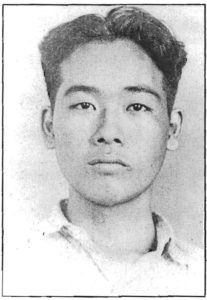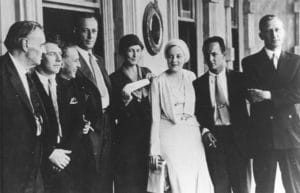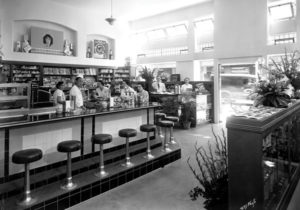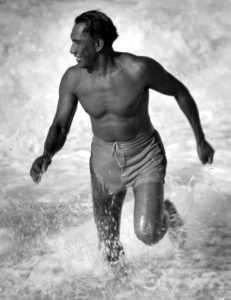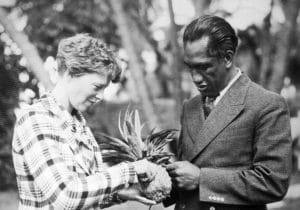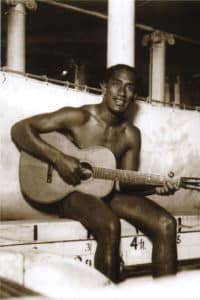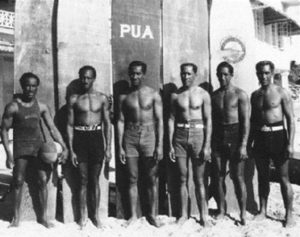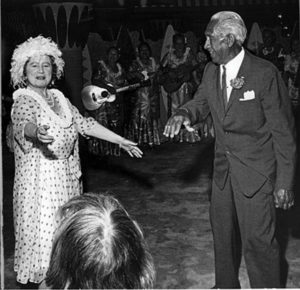Looking Toward a Brighter Future
Racial tensions in multiethnic Hawai‘i surfaced between the wars in two major murder cases, the Fukunaga case of 1928 and the Massie case of 1931. These cases were important because they outlined racial tensions that existed in the islands. Hawai‘i almost lost its Organic Act because of these cases, and statehood would be harder to achieve. In one case, a guilty Japanese man was executed. In the other case, white people guilty of murdering a Hawaiian man were set free after serving only a one-hour sentence in the governor’s office. Bitter feelings were left in Hawai‘i over both of these cases for many years.
However, positive things were happening in the islands that would introduce more of the world to the people and traditions of the Hawaiian Islands. Duke Kahanamoku, called the father of modern international surfing, was born in 1890 in Honolulu. He made surfing popular in California from 1915 to 1932 and recommended that surfing be an Olympic event. As a swimmer, he began winning Olympic medals in Sweden in 1912. In the 1920 Olympics in Belgium, Kahanamoku won two more gold medals, then a silver medal in 1924 at the Paris Olympics. He played for the U.S. water polo team in the 1932 Olympics, and he was still winning Olympic medals at the age of forty-two. Back in Hawai‘i, Kahanamoku was elected sheriff of the City and Country of Honolulu fourteen times. When Hawai‘i became a state in 1959, Kahanamoku was appointed Hawai‘i’s Official “Ambassador of Aloha.” Duke Kahanamoku became the first person to be inducted into both the Swimming Hall of Fame and the Surfing Hall of Fame in 1965. He died in 1968. He brought surfing as a sport to new heights and is remembered for his fine character as well as his achievements.
The post-World War I years brought Hawai‘i prosperity and civic improvements. As on the mainland, hard times followed the stock market crash of 1929, but this ended up helping the cause of labor in Hawai‘i. From 1900 to 1937, unions were organized along racial lines and poorly funded; then this changed. The strikes that did occur during the Depression brought about higher wages and better working conditions. An eight-hour day was started. Then, President Roosevelt visited Hawai‘i in 1934, boosting spirits and making Hawai‘i feel that it was a part of the United States.
